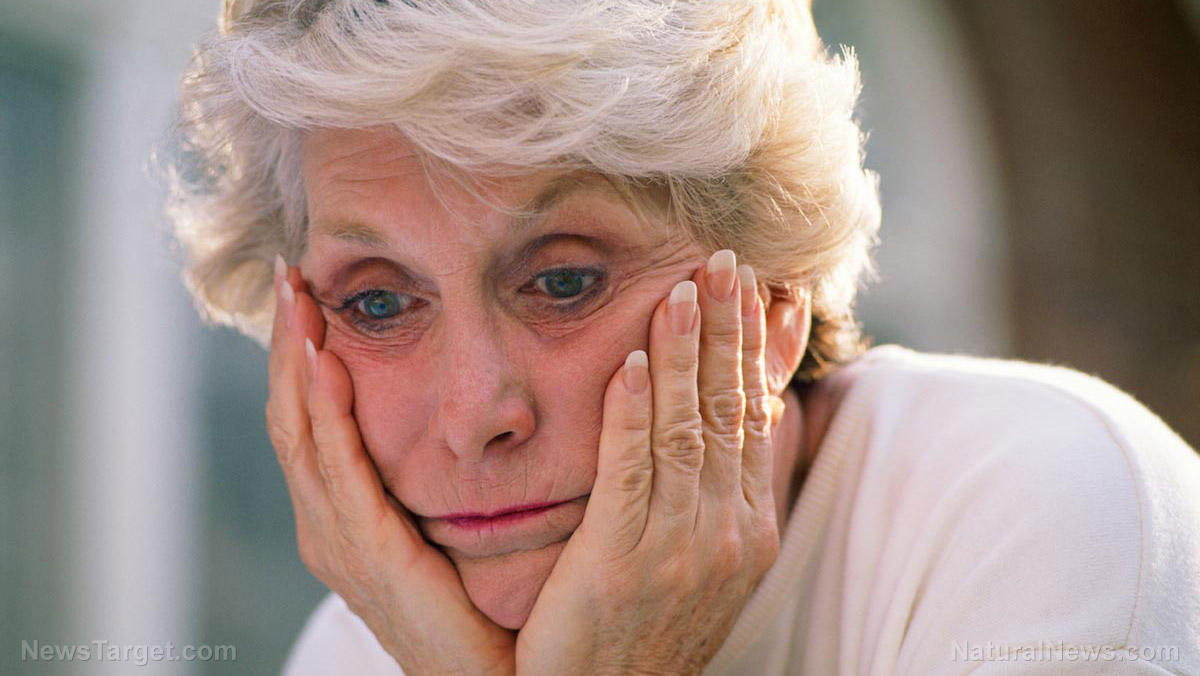Poor sleep is NOT just part of growing older: Experts encourage non-medical intervention
10/20/2017 / By Frances Bloomfield

Although one-third of older Americans take prescription sleep medication, the majority don’t discuss their sleep problems with their healthcare providers. This shocking finding comes from the most recent National Poll on Healthy Aging, conducted by the University of Michigan Institute for Healthcare Policy and Innovation.
Around 1,065 older adults between the ages of 65 and 80 years old, all with sleeping problems, answered the online survey. Roughly 46 percent of the respondents answered that they had trouble sleeping on one or more nights of the week, while 15 percent stated that they were unable to sleep properly for three nights or more. Of those who had difficulties with sleep, 40 percent said that it was due to fair or poor health, 23 percent claimed that it was because of pain, and the rest of the replies varied from having to use the bathroom at night to feelings of stress.
A little over half or 54 percent of the respondents believed that their sleeping problems weren’t serious health problems and simply came naturally with age. According to ScienceDaily.com, this belief was the most common reason why the poll respondents didn’t talk to their doctors about their sleeping issues.
As a result, eight percent of all respondents said that they were regularly or occasionally taking prescription sleep medication to help them with their sleeping problems. The rate was higher among those who had sleep troubles three or more nights a week, at 23 percent. Moreover, 14 percent stated that they were regularly taking prescription sleep or pain medication, over-the-counter sleeping aids, or herbal supplements just to be able to sleep.
100% organic essential oil sets now available for your home and personal care, including Rosemary, Oregano, Eucalyptus, Tea Tree, Clary Sage and more, all 100% organic and laboratory tested for safety. A multitude of uses, from stress reduction to topical first aid. See the complete listing here, and help support this news site.
On the outcome of the survey, poll director Dr. Preeti Malani said: “Although sleep problems can happen at any age and for many reasons, they can’t be cured by taking a pill, either prescription, over-the-counter, or herbal, no matter what the ads on TV say. Some of these medications can create big concerns for older adults, from falls and memory issues to confusion and constipation.”
Malani cited over-the-counter sleeping aids as an example. Most of these medicines are being manufactured with diphenhydramine, an antihistamine which has been known to cause urinary retention, constipation, and confusion.
Furthermore, the 2015 Beers Criteria for Potentially Inappropriate Medication Use in Older Adults has strongly advised against the use of prescription sleep medication such as Eszopiclone, Zaleplon, and Zolpidem extended release, or as they’re more commonly known, Lunesta, Sonata, and Ambien CR.
“The first step for anyone having trouble sleeping on a regular basis should be to talk to a doctor about it,” stated Malani. “Our poll shows that nearly two-thirds of those who did so got helpful advice — but a large percentage of those with sleep problems simply weren’t talking about it.”
Alison Bryant, senior vice president of research for the American Association of Retired Persons (AARP), added: “We know that sleep is a critical factor for overall health as we age, and this new research highlights sleep problems as both a significant health issue for older adults and an under-acknowledged one both by patients and their providers. We need to help people understand that lack of sleep is not just a natural part of aging.” (Related: Sleepless & Desperate For Shut-Eye? 18 Reasons You Aren’t Sleeping.)
How seniors can sleep better without medication
No matter your age, getting adequate amounts of sleep is always a must. Here are a few good practices to help seniors do just that, courtesy of the AARP:
- Avoid or limit napping: Taking regular naps can interfere with nighttime sleep quality, so try to avoid it as much as possible. If you can’t do this, then nap for 20 to 30 minutes during the earlier part of the day so it won’t affect your sleep at night.
- Eat light close to bedtime: A comforting glass of warm milk or a banana can help you sleep better. Eating or drinking anything heavier can lead to indigestion or prompt you to get up and use the bathroom in the middle of the night, both of which can mess up your sleep. Caffeine, alcohol, spicy, and sugary foods and beverages can stimulate you and make it harder to catch your much-needed 40 winks, so stay away from these as well.
- Create a suitable environment for sleep: Invest in comfortable pillows and mattresses. Ensure that your room isn’t too bright, noisy, or hot. Keeping your bedroom free of clutter can help your mind relax and make it easier to get some shut eye.
For more stories about sleep or overall health, simply visit MindBodyScience.news today.
Sources include:
Tagged Under: finding restful sleep, health, longevity, natural remedies, senior citizens, sleep, sleep deprivation, sleeping pills, sleeping problems




















